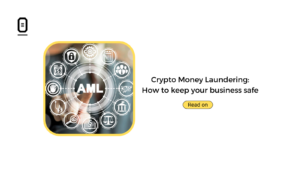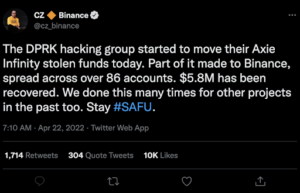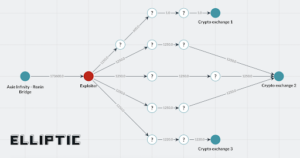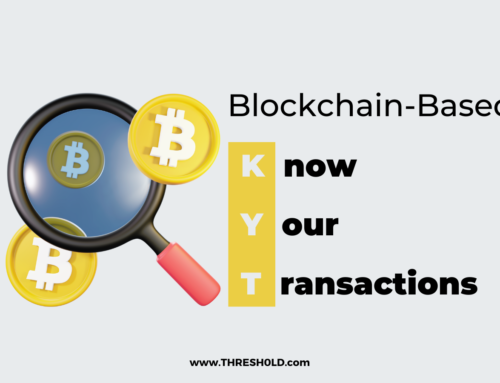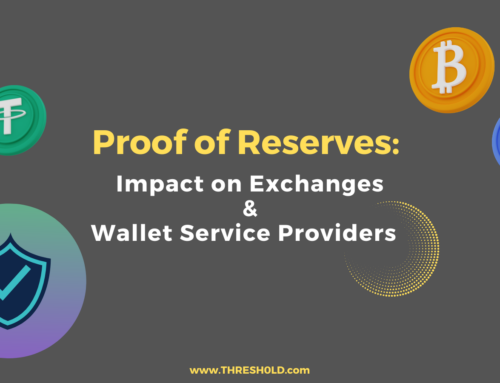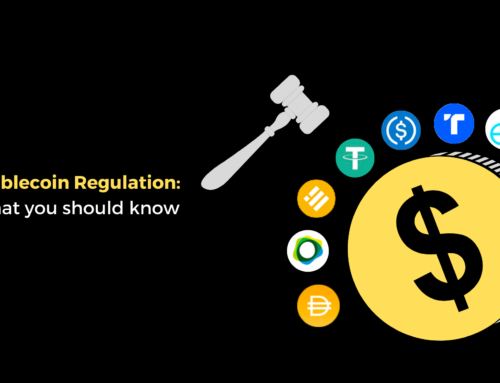2022 has witnessed some high profile security breaches in the world of crypto, leading to losses in the hundreds of millions of dollars. Notably, $326M was lost to the Solana- Wormhole hack in early February and $615M was lost to the Ronin Bridge exploit in late March.
However, we have also witnessed law enforcement tracking and recovering stolen funds. On Feb 8th, 2022, the USA Department of Justice (DOJ) announced that it had seized $3.6 Billion in stolen crypto directly linked to the hack of Bitfinex n 2016. Ilya Lichtenstein and his wife Heather Morgan were arrested and are being charged with conspiracy to launder stolen cryptocurrency. This is the DOJ’s largest financial seizure ever, and it shows that the pseudo-anonymity in the digital asset space does not provide a safe haven for money laundering or other criminal activity.
On 22nd April 2022, Binance exchange CEO Changpeng Zhao, tweeted that Binance had recovered $5.8 million linked to the Ronin Bridge-Axie Infinity hack.
According to crypto data analytics company Elliptic the exploiter attempted to launder some of the funds through crypto exchanges but was unsuccessful because the transaction addresses had been flagged.
On April 14th the US Treasury’s Office of Foreign Assets Control (OFAC) published new sanctions against the Ronin Bridge hacker’s Ethereum address. These sanctions prohibit US persons and entities from interacting with this address thereby making it difficult for the funds to be cashed out via centralised exchanges. In 2021, OFAC sanctioned Suex and Chatex crypto exchanges over ransomware links.
Global regulatory action has helped digital asset businesses to apply best practices and rigorous compliance controls to mitigate risk. From the Bitfinex hack of 2016 to the more recent exploit of blockchain bridges, it has become apparent that laundering stolen funds via crypto is not easy.
Robust compliance is a key requirement in digital asset businesses. THRESH0LD provides address flagging in a readily available manner – essential for mitigating risk.
AML Watchlist Screening
THRESH0LD’s built-in AML screening verifies both inbound and outbound transactions against databases of addresses associated with criminal activities such as thefts, hacks and fraud including OFAC global sanctions watchlist. This helps to ensure that your addresses and services are not reported and placed on the global blacklist of suspicious activities.
With THRESH0LD’s AML engine you benefit from:
- screening of addresses sending in funds to your business
- screening of addresses to which withdrawal requests are made by users
- flagging suspicious transactions for further review
- creating custom AML rules to maximise robustness
- tracking across multiple assets and transaction thresholds
- adding a custom list of addresses you want to track
Why is this important to your business?
Within a week, you will:
- minimise risk, maximise safety and protect your business
- enhance regulatory compliance best practices
- secure your business from high risk & fraudulent activities
Want to stay safe?

